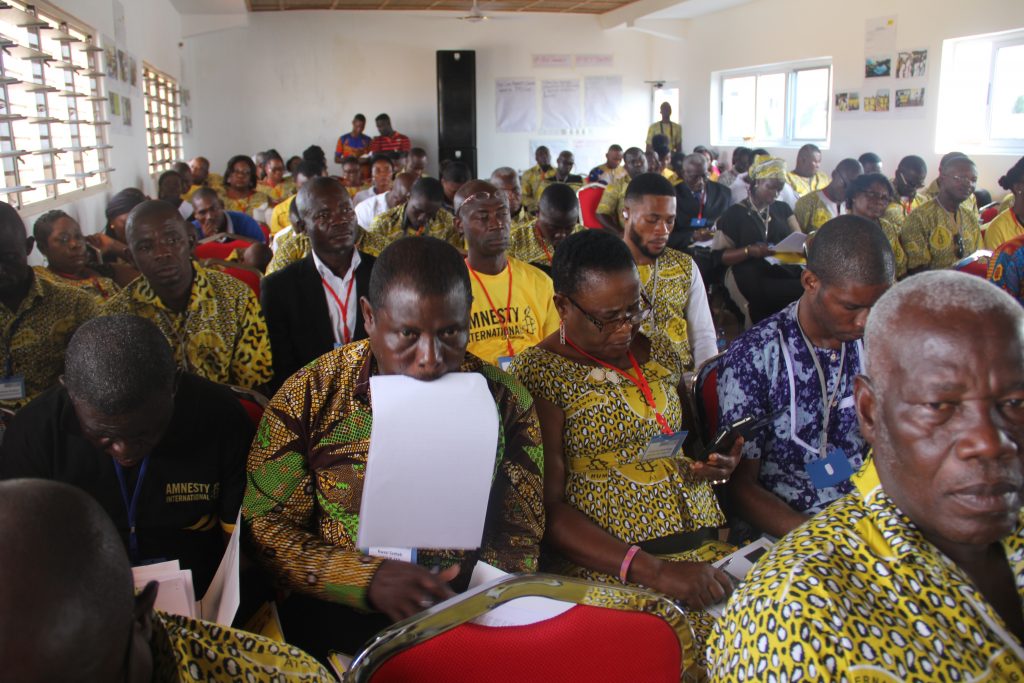Human Rights Advocates over the years have warn government on the menace of congestion in the country’s prisons.
Speaking as the Guest Speaker at the 2019 Amnesty International Ghana Annual General Assembly Meeting, on the theme “Improving prison conditions in Ghana- a necessary step towards the protection of rights” the Executive Director of Crime Check Foundation and Ambassador Extraordinaire of Prisons, Ibrahim Oppong Kwarteng said, it is about time the government privatized some of the country’s prisons to ease the congestion and reduce the huge costs associated with its running.
“I call on Government to privatize some of the prisons, if possible, to ensure
its effective operations and to reduce the huge costs associated with the
running of the country’s 44 public prisons” he said.
Oppong Kwarteng cataloged reasons for prison congestion as follows;
(a) Absence of alternative punishments by courts for first time offenders
(b) Excessive high prison sentences meted out to offenders in the absence of non – custodial options such as Community Service
(c) Lengthy trial processes resulting in long stay on remand
(d) Jailing of large numbers of addicted Cannabis
inmates instead of passing the Narcotics Control Commission bill into law to
decriminalize Cannabis use.
(e) Continuous imprisonment of pregnant women instead of giving them suspended
sentences as required by law
(f) Inflation of ages of juveniles by corrupt police officers to have them convicted in walled prisons
(g) Distorting of facts in the writing of statements for unlettered accused persons by some police personnel
(h) The police misleading accused persons (most of whom are unlettered) to plead guilty in court to have them jailed and missing dockets of those on remand and convicts.
The Ambassador Extraordinaire said, “sixty-two years after independence, Ghana still warehouses large numbers of human beings in very deplorable conditions. The end result is that most prisoners in Ghana continue to queue in large numbers to visit the toilet, and queue to bath.
According to him, the decriminalization of cannabis use is prudent as some people are addicted to it and must be treated as sick people and not as criminals adding that “PNDC Law 236 criminalizes the use of Marijuana and this has led to the incarceration of large numbers of cannabis users. But Ghana, he said, has signed onto international drug control conventions which decriminalizes cannabis use”
He was optimistic that the passage of the non-custodial sentencing bill, which will give judges the option of sentencing petty offenders to community service, will help reduce the huge numbers in prison.

Oppong Kwarteng said, “The harsh design of Ghana’s colonial prison cells, poor lighting and ventilation has led to persistent outbreak of communicable diseases in most of the prisons, leading to the loss of lives of some inmates” adding that “It is a pity that whiles the Police and Military have hospitals, it appears we do not see the need to provide a hospital for restricted individuals who live in deplorable conditions. It is equally surprising that in this time and age, the feeding fee for a prisoner in Ghana is one cedi eighty pesewas which is a quarter of a dollar”.




















































